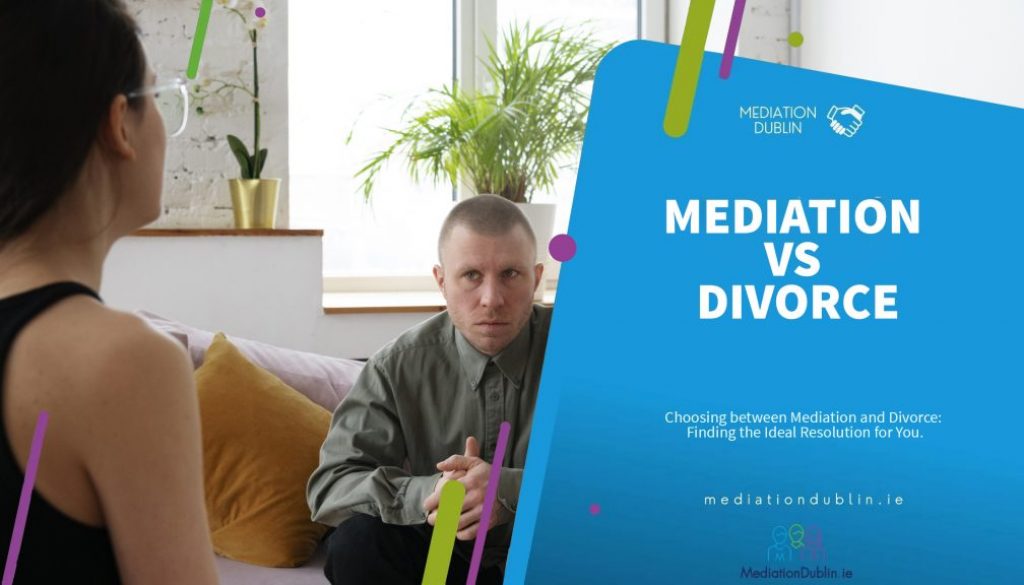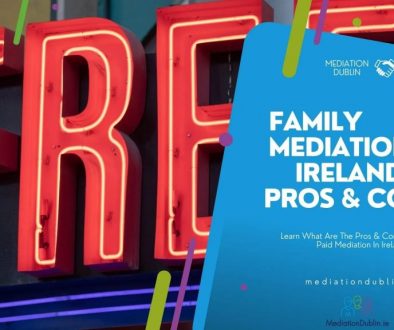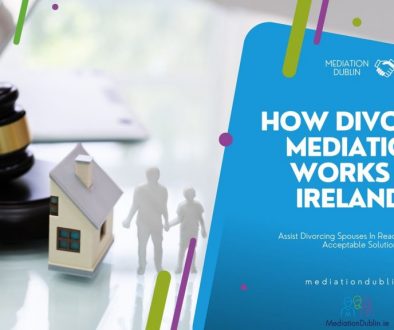Divorce vs. Mediation

Divorce vs. Mediation: Choosing the Right Path for Your Breakup
Introduction:
Divorce and separation are never easy decisions, but when a relationship reaches its breaking point, it’s crucial to approach the process with careful consideration. In the traditional sense, divorce often conjures up images of courtroom battles, contentious disputes, and significant emotional strain. However, there is an alternative to this adversarial approach: divorce mediation. In this blog, we’ll explore the key differences between divorce and family mediation, and why the latter can be a more amicable and effective way to navigate the challenging journey of ending a marriage.
Divorce: The Traditional Route
Divorce, in its traditional form, involves filing legal proceedings in court to dissolve a marriage. Each spouse hires their own attorney, and the process can quickly become confrontational. Issues such as property division, alimony, child custody, and support are left to be decided by a judge, whose decision may not always align with either party’s desires.
Key Aspects of Divorce:
Adversarial: The parties are pitted against each other, leading to potential animosity and escalation of conflicts.
Time-consuming: Court schedules and backlogs can drag out the process for months or even years.
Costly: Legal fees, court expenses, and expert witness fees can quickly add up.
Limited control: A judge makes the final decisions, leaving less room for negotiation and personalized solutions.
Stressful: The confrontational nature of divorce proceedings can take a toll on both parties’ emotional well-being.
Mediation: A Peaceful Resolution
Mediation, on the other hand, provides a more cooperative and mutually respectful approach to ending a marriage. It involves a neutral third party, the mediator, who facilitates open communication and guides the couple towards reaching their own agreements.
Key Aspects of Mediation:
Collaborative: Mediation encourages open dialogue, problem-solving, and compromise, fostering a less combative environment.
Efficient: The process is often quicker than litigation, as the couple can work at their own pace without waiting for court dates.
Cost-effective: Mediation generally requires fewer expenses, making it more affordable for both parties.
Empowerment: Couples maintain control over the outcome and can create customized solutions that address their unique needs.
Supportive: Mediators help couples navigate difficult emotions, ensuring the process remains constructive.
Divorce VS Mediation: What should you choose?
The decision between divorce and mediation is deeply personal and depends on the specific circumstances of each couple. It’s essential to consider the following factors:
Level of Cooperation: If both parties can communicate respectfully and are open to compromise, mediation may be a viable option. However, if communication has broken down entirely, litigation may be the only course of action.
Emotional Well-being: Emotional health is crucial during this difficult time. Mediation can offer a more supportive environment, helping couples manage stress and maintain better mental well-being.
Children: If children are involved, their well-being should be the top priority. Mediation allows parents to work together to create a co-parenting plan that considers the children’s needs and minimizes disruption.
Complexity of Issues: If the couple has complex financial matters or significant disagreements on various aspects, mediation in Ireland may require more effort. In such cases, legal representation may still be necessary.
Conclusion:
Divorce and mediation represent two distinct paths for couples seeking to end their marriage. While divorce may be unavoidable in some cases, mediation offers a more collaborative and emotionally intelligent approach to separation. By choosing mediation, couples can potentially save time, money, and emotional turmoil, while retaining control over their post-divorce lives. Whatever path is chosen, seeking guidance from legal professionals and mediators is essential to ensure the process is as smooth and constructive as possible. Remember, a peaceful resolution benefits everyone involved and sets the foundation for a positive future beyond divorce.


